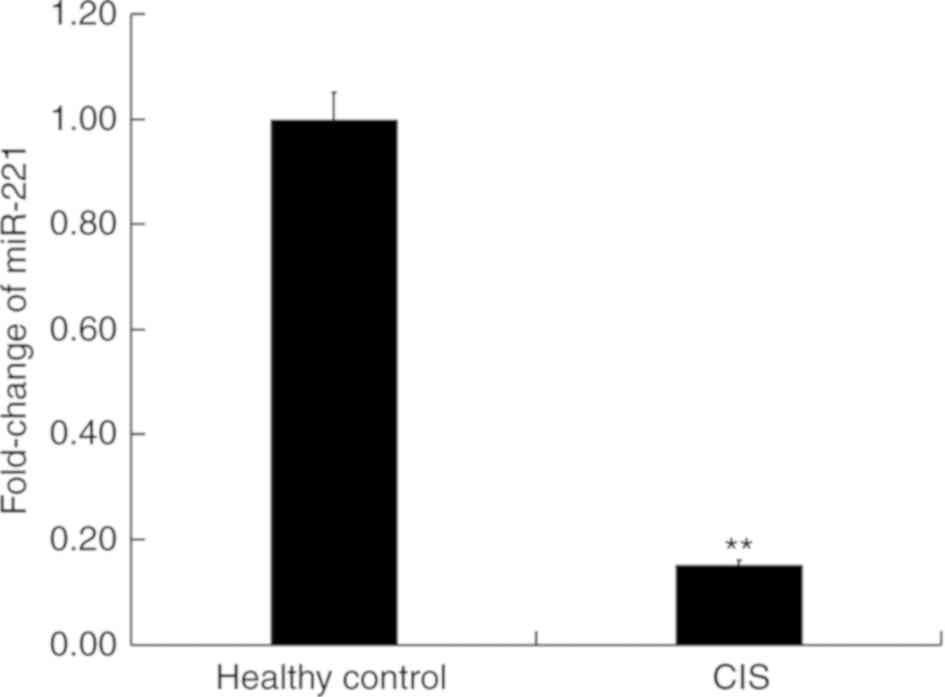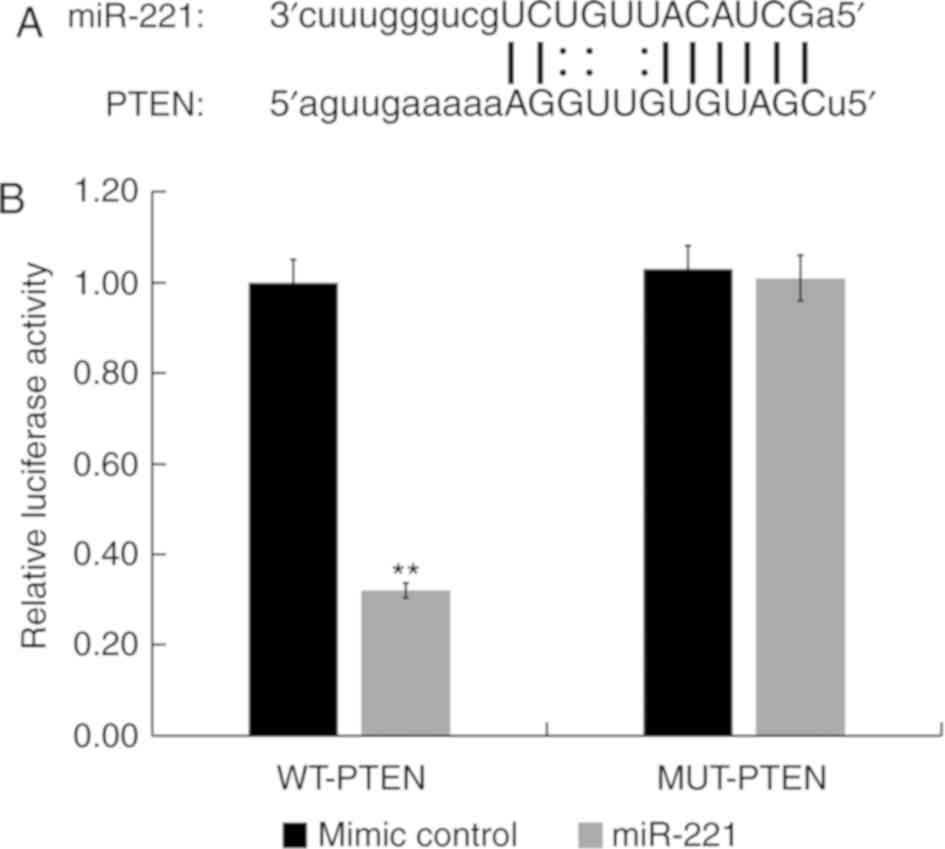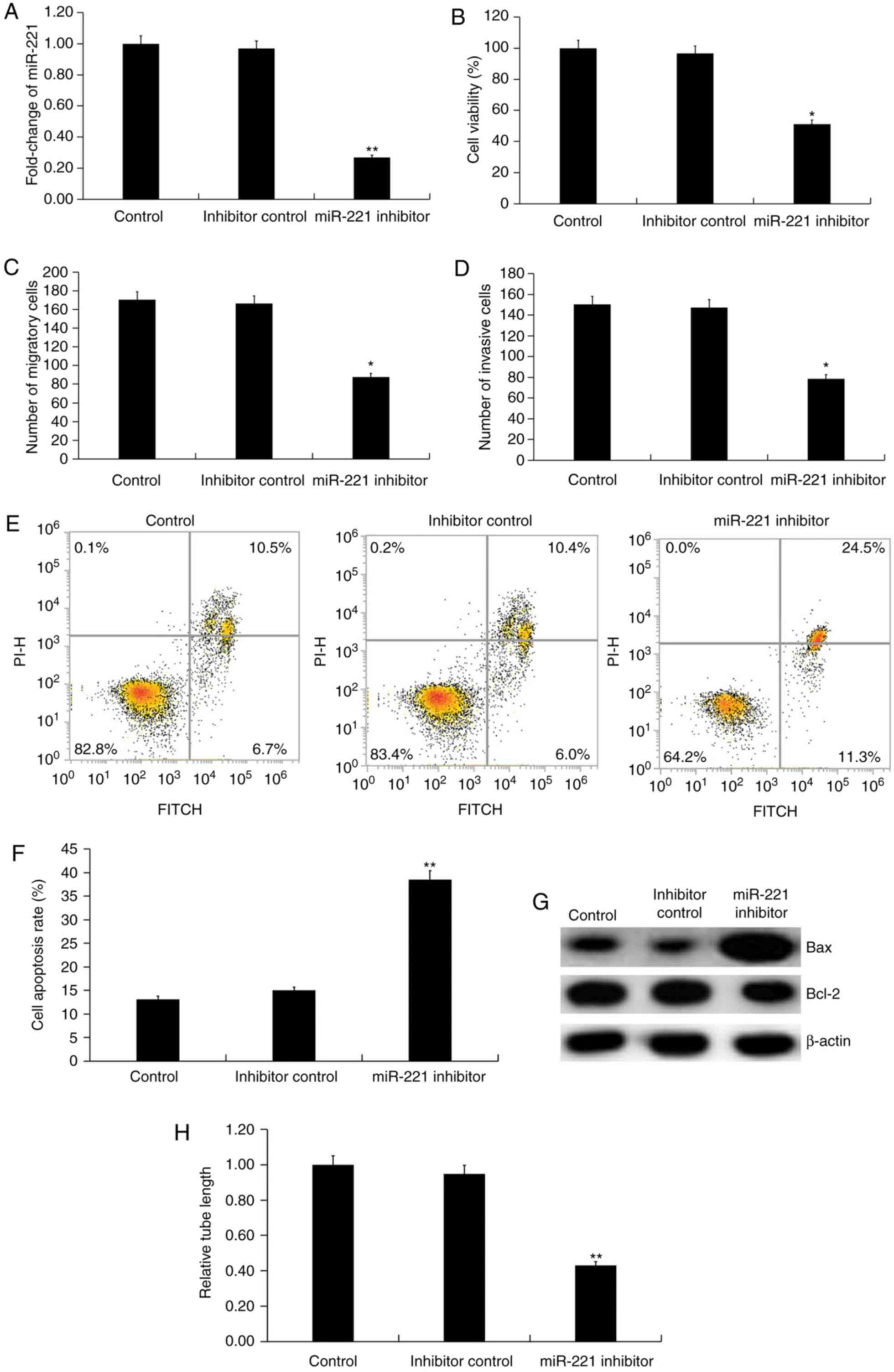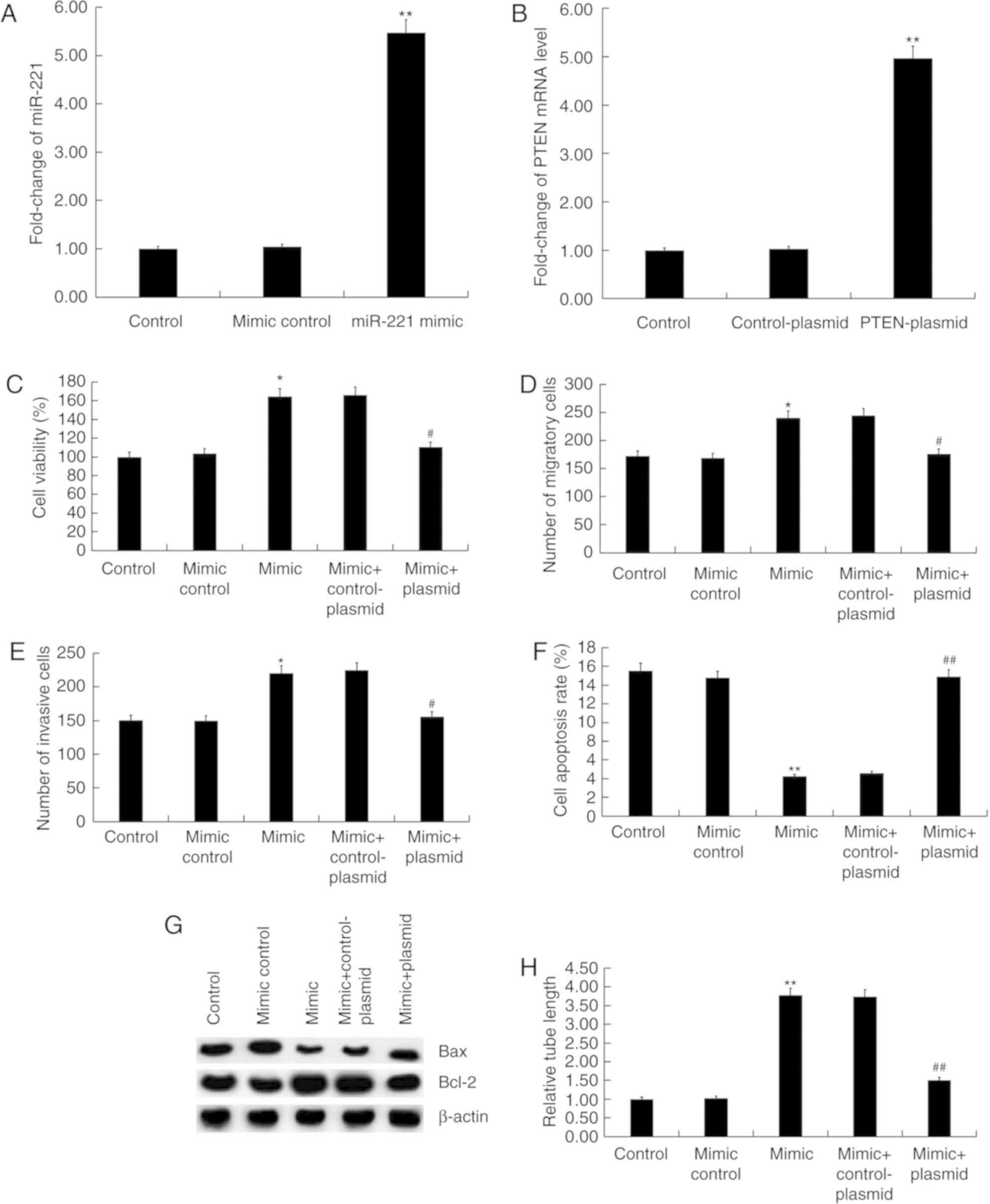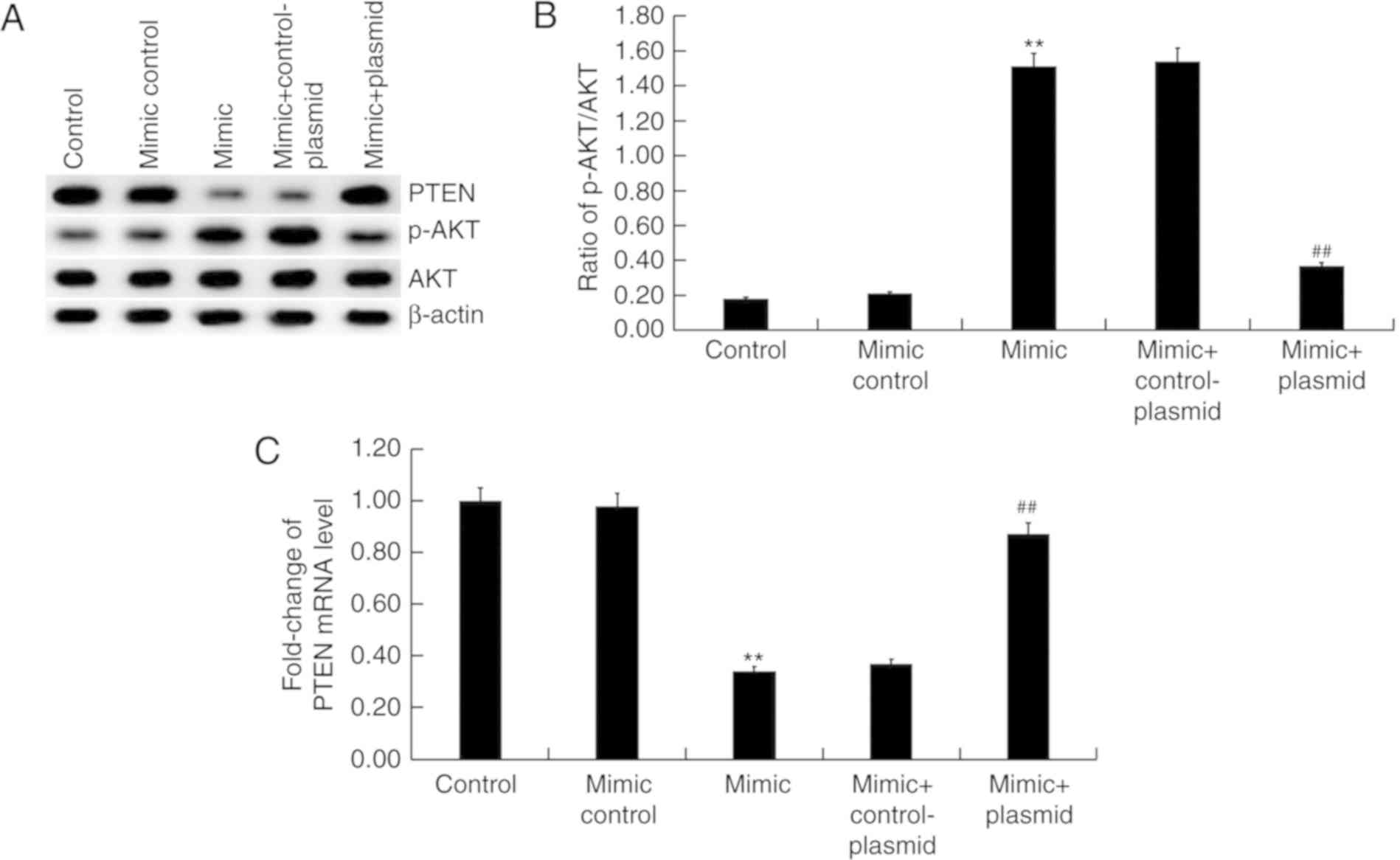|
1
|
Middleton LE, Corbett D, Brooks D, Sage
MD, Macintosh BJ, McIlroy WE and Black SE: Physical activity in the
prevention of ischemic stroke and improvement of outcomes: A
narrative review. Neurosci Biobehav Rev. 37:133–137. 2013.
View Article : Google Scholar : PubMed/NCBI
|
|
2
|
Doyle KP, Simon RP and Stenzel-Poore MP:
Neuropharmacology-special issue on cerebral ischemia mechanisms of
ischemic brain damage-review article. Neuropharmacology.
55:310–318. 2008. View Article : Google Scholar : PubMed/NCBI
|
|
3
|
Dąbrowska-Bender M, Milewska M, Gołąbek A,
Duda-Zalewska A and Staniszewska A: The impact of ischemic cerebral
stroke on the quality of life of patients based on clinical, social
and psychoemotional factors. J Stroke Cerebrovasc Dis. 26:101–107.
2017. View Article : Google Scholar : PubMed/NCBI
|
|
4
|
Zhu XF, Rao ML, Peng J, et al: Dynamis
observed morphologic change of neuron and microcirculation in focal
cerebral ischemia and reperfusion of rat. Chin J Clin Rehabil.
6:1904–1905. 2002.(In Chinese).
|
|
5
|
Chen J and Choop M: Neurorestorative
treatment of stroke: Cell and pharmacological approaches. NeuroRx.
3:466–473. 2006. View Article : Google Scholar : PubMed/NCBI
|
|
6
|
Marti HJ, Bernaudin M, Bellail A, Schoch
H, Euler M, Petit E and Risau W: Hypoxia-induced vascular
endothelial growth factor expression precedes neovascularization
after cerebral ischemia. Am J Patho1. 156:965–976. 2000. View Article : Google Scholar
|
|
7
|
Krupinski J, Kaluza J, Kumar P, Kumar S
and Wang JM: Role of angiogenesis in patients with cerebral
ischemic stroke. Stroke. 25:1794–1798. 1994. View Article : Google Scholar : PubMed/NCBI
|
|
8
|
Risau W: Mechanisms of angiogenesis.
Nature. 386:671–674. 1997. View
Article : Google Scholar : PubMed/NCBI
|
|
9
|
Ergul A, Alhusban A and Fagan SC:
Angiogenesis: A harmonized target for recovery after stroke.
Stroke. 43:2270–2274. 2012. View Article : Google Scholar : PubMed/NCBI
|
|
10
|
Velazquez OC, Snyder R, Liu ZJ, Fairman RM
and Herlyn M: Fibroblast-dependent differentiation of human
microvaseular endothelial cells into capillary-like 3-dimensional
networks. FASEB J. 16:1316–1318. 2002. View Article : Google Scholar : PubMed/NCBI
|
|
11
|
Hillen F and Griffioen AW: Tumour
vascularization: Sprouting angiogenesis and beyond. Cancer
Metastasis Rev. 26:489–502. 2007. View Article : Google Scholar : PubMed/NCBI
|
|
12
|
Nagy JA, Benjamin L, Zeng H, Dvorak AM and
Dvorak HF: Vascular permeability, vasculax hyperpermeability and
angiogenesis. Angiogenesis. 11:109–119. 2008. View Article : Google Scholar : PubMed/NCBI
|
|
13
|
Bartel DP: MicroRNAs: Genomics,
biogenesis, mechanism and function. Cell. 116:281–297. 2004.
View Article : Google Scholar : PubMed/NCBI
|
|
14
|
Ranganathan K and Sivasankar V:
MicroRNAs-Biology and clinical applications. J Oral Maxillofac
Pathol. 18:229–234. 2014. View Article : Google Scholar : PubMed/NCBI
|
|
15
|
Feng N, Wang Z, Zhang Z, He X, Wang C and
Zhang L: miR-487b promotes human umbilical vein endothelial cell
proliferation, migration, invasion and tube formation through
regulating THBS1. Neurosci Lett. 591:1–7. 2015. View Article : Google Scholar : PubMed/NCBI
|
|
16
|
Kuehbacher A, Urbich C and Dimmeler S:
Targeting microRNA expression to regulate angiogenesis. Trends
Pharmacol Sci. 29:12–15. 2008. View Article : Google Scholar : PubMed/NCBI
|
|
17
|
Wu F, Yang Z and Li G: Role of specific
microRNAs for endothelial function and angiogenesis. Biochem
Biophys Res Commun. 386:549–553. 2009. View Article : Google Scholar : PubMed/NCBI
|
|
18
|
Li LJ, Huang Q, Zhang N, Wang GB and Liu
YH: miR-376b-5p regulates angiogenesis in cerebral ischemia. Mol
Med Rep. 10:527–535. 2014. View Article : Google Scholar : PubMed/NCBI
|
|
19
|
Zhang L, Zhang Y, Zhang X, Zhang Y, Jiang
Y, Xiao X, Tan J, Yuan W and Liu Y: MicroRNA-433 inhibits the
proliferation and migration of HUVECs and neurons by targeting
hypoxia-inducible factor 1 alpha. J Mol Neurosci. 61:135–143. 2017.
View Article : Google Scholar : PubMed/NCBI
|
|
20
|
Liang Z, Chi YJ, Lin GQ, Luo SH, Jiang QY
and Chen YK: MiRNA-26a promotes angiogenesis in a rat model of
cerebral infarction via PI3K/AKT and MAPK/ERK pathway. Eur Rev Med
Pharmacol Sci. 22:3485–3492. 2018.PubMed/NCBI
|
|
21
|
Liu M, Liu J, Wang L, Wu H, Zhou C, Zhu H,
Xu N and Xie Y: Association of serum microRNA expression in
hepatocellular carcinomas treated with transarterial
chemoembolization and patient survival. PLoS One. 9:e1093472014.
View Article : Google Scholar : PubMed/NCBI
|
|
22
|
Zheng Q, Peskoe SB, Ribas J, Rafiqi F,
Kudrolli T, Meeker AK, De Marzo AM, Platz EA and Lupold SE:
Investigation of miR-21, miR-141 and miR-221 expression levels in
prostate adenocarcinoma for associated risk of recurrence after
radical prostatectomy. Prostate. 74:1655–1662. 2014. View Article : Google Scholar : PubMed/NCBI
|
|
23
|
Tao K, Yang J, Guo Z, Hu Y, Sheng H, Gao H
and Yu H: Prognostic value of miR-221-3p, miR-342-3p and miR-491-5p
expression in colon cancer. Am J Transl Res. 6:391–401.
2014.PubMed/NCBI
|
|
24
|
Yang F, Wang W, Zhou C, Xi W, Yuan L, Chen
X, Li Y, Yang A, Zhang J and Wang T: MiR-221/222 promote human
glioma cell invasion and angiogenesis by targeting TIMP2. Tumour
Biol. 36:3763–3773. 2015. View Article : Google Scholar : PubMed/NCBI
|
|
25
|
Tsai PC, Liao YC, Wang YS, Lin HF, Lin RT
and Juo SH: Serum microRNA-21 and microRNA-221 as potential
biomarkers for cerebrovascular disease. J Vasc Res. 50:346–354.
2013. View Article : Google Scholar : PubMed/NCBI
|
|
26
|
Sørensen SS, Nygaard AB, Nielsen MY,
Jensen K and Christensen T: miRNA expression profiles in
cerebrospinal fluid and blood of patients with acute ischemic
stroke. Transl Stroke Res. 5:711–718. 2014. View Article : Google Scholar : PubMed/NCBI
|
|
27
|
Heldner MR, Zubler C, Mattle HP, Schroth
G, Weck A, Mono ML, Gralla J, Jung S, El-Koussy M, Lüdi R, et al:
National Institutes of Health stroke scale score and vessel
occlusion in 2152 patients with acute ischemic stroke. Stroke.
44:1153–1157. 2013. View Article : Google Scholar : PubMed/NCBI
|
|
28
|
Powers WJ, Rabinstein AA, Ackerson T,
Adeoye OM, Bambakidis NC, Becker K, Biller J, Brown M, Demaerschalk
BM, Hoh B, et al: 2018 Guidelines for the early management of
patients with acute ischemic stroke: A guideline for healthcare
professionals from the American heart association/American stroke
association. Stroke. 49:e46–e110. 2018. View Article : Google Scholar : PubMed/NCBI
|
|
29
|
Livak KJ and Schmittgen TD: Analysis of
relative gene expression data using real-time quantitative PCR and
the 2(-Delta Delta C(T)) method. Methods. 25:402–408. 2001.
View Article : Google Scholar : PubMed/NCBI
|
|
30
|
Attanasio S and Schaer G: Therapeutic
angiogenesis for the management of refractory angina: Current
concepts. Cardiovasc Ther. 29:e1–e11. 2011. View Article : Google Scholar : PubMed/NCBI
|
|
31
|
Chopp M, Zhang ZG and Jiang Q:
Neurogenesis, angiogenesis, and MRI indices of functional recovery
from stroke. Stroke. 38 (2 Suppl):S827–S831. 2007. View Article : Google Scholar
|
|
32
|
Yuan Y, Zhang Z, Wang Z and Liu J:
MiRNA-27b regulates angiogenesis by targeting ampk in mouse
ischemic stroke model. Neuroscience. 398:12–22. 2019. View Article : Google Scholar : PubMed/NCBI
|
|
33
|
Yin KJ, Hamblin M and Chen YE:
Angiogenesis-regulating microRNAs and ischemic stroke. Curr Vasc
Pharmacol. 13:352–365. 2015. View Article : Google Scholar : PubMed/NCBI
|
|
34
|
Chen WX, Hu Q, Qiu MT, Zhong SL, Xu JJ,
Tang JH and Zhao JH: miR-221/222: Promising biomarkers for breast
cancer. Tumour Biol. 34:1361–1370. 2013. View Article : Google Scholar : PubMed/NCBI
|
|
35
|
Liu S, Sun X, Wang M, Hou Y, Zhan Y, Jiang
Y, Liu Z, Cao X, Chen P, Liu Z, et al: A microRNA 221-and
222-mediated feedback loop maintains constitutive activation of
NFκB and STAT3 in colorectal cancer cells. Gastroenterology.
147:847–859. 2014. View Article : Google Scholar : PubMed/NCBI
|
|
36
|
Gong ZH, Zhou F, Shi C, Xiang T, Zhou CK,
Wang QQ, Jiang YS and Gao SF: miRNA-221 promotes cutaneous squamous
cell carcinoma progression by targeting PTEN. Cell Mol Biol Lett.
24:92019. View Article : Google Scholar : PubMed/NCBI
|
|
37
|
Ren Y, Yang M, Ma R, Gong Y, Zou Y, Wang T
and Wu J: Microcystin-LR promotes migration via the cooperation
between microRNA-221/PTEN and STAT3 signal pathway in colon cancer
cell line DLD-1. Ecotoxicol Environ Saf. 167:107–113. 2019.
View Article : Google Scholar : PubMed/NCBI
|
|
38
|
Cortés-Garcia JD, Briones-Espinoza MJ,
Vega-Cárdenas M, Ruíz-Rodríguez VM, Mendez-Mancilla A, Gómez-Otero
AE, Vargas Morales JM, García-Hernández MH and Portales-Pérez DP:
The inflammatory state of adipose tissue is not affected by the
anti-inflammatory response of the A2a-adenosine system and
miR-221/PTEN. Int J Biochem Cell Biol. 100:42–48. 2018. View Article : Google Scholar : PubMed/NCBI
|
|
39
|
Song MS, Salmena L and Pandolfi PP: The
functions and regulation of the PTEN tumour suppressor. Nat Rev Mol
Cell Biol. 13:283–296. 2012. View Article : Google Scholar : PubMed/NCBI
|
|
40
|
Hopkins BD, Hodakoski C, Barrows D, Mense
SM and Parsons RE: PTEN function: The long and the short of it.
Trends Biochem Sci. 39:183–190. 2014. View Article : Google Scholar : PubMed/NCBI
|
|
41
|
Serra H, Chivite I, Angulo-Urarte A, Soler
A, Sutherland JD, Arruabarrena-Aristorena A, Ragab A, Lim R,
Malumbres M, Fruttiger M, et al: PTEN mediates Notch-dependent
stalk cell arrest in angiogenesis. Nat Commun. 6:79352015.
View Article : Google Scholar : PubMed/NCBI
|
|
42
|
Urbich C, Kuehbacher A and Dimmeler S:
Role of microRNAs in vascular diseases, inflammation, and
angiogenesis. Cardiovasc Res. 79:581–588. 2008. View Article : Google Scholar : PubMed/NCBI
|
|
43
|
Li L, Wang Z, Hu X, Wan T, Wu H, Jiang W
and Hu R: Human aortic smooth muscle cell-derived exosomal
miR-221/222 inhibits autophagy via a PTEN/Akt signaling pathway in
human umbilical vein endothelial cells. Biochem Biophys Res Commun.
479:343–350. 2016. View Article : Google Scholar : PubMed/NCBI
|















